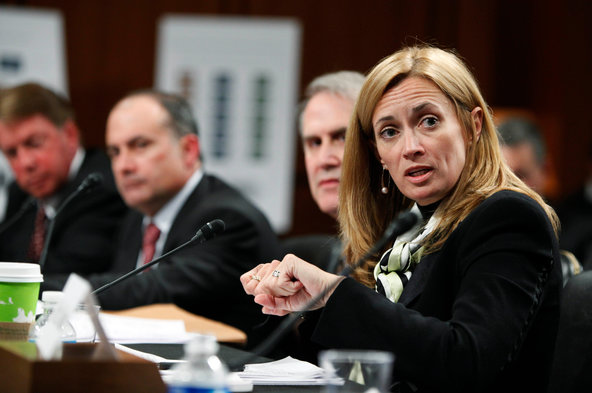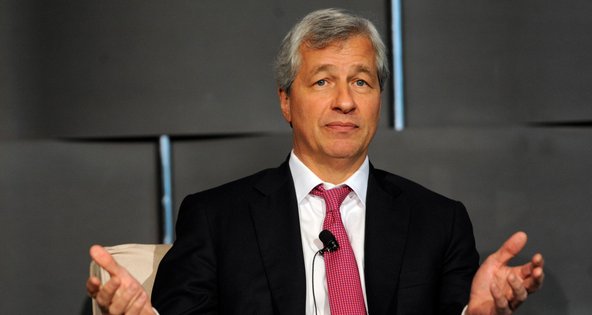 Manuel Balce Ceneta/Associated PressIt is unclear whether FERC will pursue a separate action against Blythe Masters, a senior JPMorgan executive.
Manuel Balce Ceneta/Associated PressIt is unclear whether FERC will pursue a separate action against Blythe Masters, a senior JPMorgan executive.
JPMorgan Chase is aiming to settle accusations it devised “manipulative schemes” that transformed “money-losing power plants into powerful profit centers,” a deal that is expected to cost the bank, the nation’s largest, about $500 million.
JPMorgan and the regulator of the nation’s energy markets are still negotiating a potential fine, according to people briefed on the matter, and the talks are not yet final. The $500 million figure could shift as the two sides inch closer to a settlement, a potential record for the Federal Energy Regulatory Commission, or FERC.
The accusations against JPMorgan surfaced in a confidential government document, reviewed by The New York Times, that outlined a pattern of illegal trading in California and Michigan electric markets. The document also claimed one of JPMorgan’s most senior executives gave “false and misleading statements” under oath.
Investigators for FERC sent the document to the bank in March, a preliminary warning that they intended to recommend that the agency pursue an action against JPMorgan and the executive, Blythe Masters. The bank replied to the accusations in mid-May, the people briefed on the matter said, ultimately leading to settlement talks in recent weeks.
It is unclear whether the energy regulator will pursue a separate action against Ms. Masters, known for developing complex financial instruments like derivatives that played a role in the financial crisis. A majority of the five-member energy commission must approve any action — settlement or otherwise — that the FERC investigators recommend.
JPMorgan’s Trading Loss
A settlement would be welcome news for the bank as it faces a swirl of regulatory investigations. After suffering a $6 billion trading loss last year, the bank came under investigation by the Securities and Exchange Commission and the F.B.I. Banking regulators are also weighing new enforcement actions against the bank for the way it collected credit card debt.
A spokeswoman for the bank declined to comment. FERC also declined to comment.
For the energy regulator, it would be the latest in a string of actions against big banks. On Tuesday, FERC ordered Barclays to pay a $470 million penalty for suspected manipulation of energy markets in California and other Western states by some of its traders. The bank is fighting the charges.
JPMorgan faces similar allegations stemming from its rights to sell electricity from power plants in California and Michigan. In the aftermath of the 2008 financial crisis, it became a losing business that relied on “inefficient” and outdated technology, or as JPMorgan called it, “an unprofitable asset.”
Under “pressure to generate large profits,” FERC’s investigators said in the March document, traders in Houston devised a workaround. Adopting eight different “schemes” between September 2010 and June 2011, the traders offered the energy at prices “calculated to falsely appear attractive” to state energy authorities. The effort prompted authorities in California and Michigan to dole out about $83 million in “excessive” payments to JPMorgan, the investigators said.
“Any such improper payments to generators are ultimately borne by the households, businesses and government entities that are the end consumers of electricity,” FERC said.
The prospect of a deal with JPMorgan Chase was reported earlier by The Wall Street Journal.
 Leslye Davis/The New York TimesA branch of JPMorgan Chase in New York.
Leslye Davis/The New York TimesA branch of JPMorgan Chase in New York.
Article source: http://dealbook.nytimes.com/2013/07/17/jpmorgan-in-talks-to-settle-energy-manipulation-case-for-500-million/?partner=rss&emc=rss
